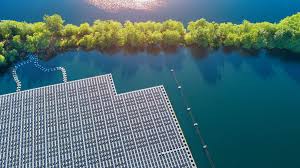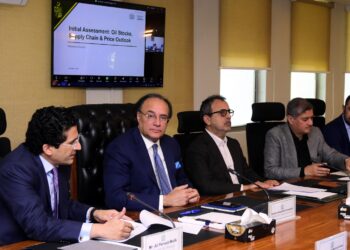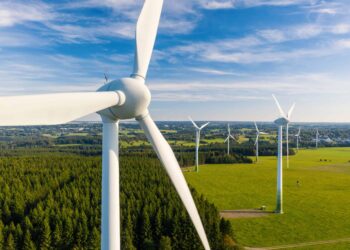ISLAMABAD: The Water and Power Development Authority (WAPDA) has reportedly blamed the Power Division for the cancellation of the World Bank-funded 300 MW Floating Solar Project at the Tarbela-Barotha Hydropower Generation Complex.
Sources told Newzshewz that the Member (Finance) of WAPDA, in a recent communication with the Power Division, stated that the procurement process for the project had been successfully completed and was at the award stage. This achievement followed WAPDA’s extensive efforts, including the preparation of comprehensive bidding documents and the organization of an international roadshow to attract global bidders, despite the challenges posed by the region’s security situation.
Furthermore, the World Bank had extended full financial support throughout the process, which adhered strictly to their procurement guidelines. The World Bank’s Vice President, Martin Raiser, highlighted the project’s viability and strategic importance during his visit to the Tarbela 5th Extension project in December 2023.
“Through rigorous evaluation, the project’s cost has been optimized to $238 million, with an exceptionally competitive tariff of 2.98 US cents per kWh — the lowest ever recorded in the region. This tariff structure not only meets international benchmarks but also offers a significant economic advantage, especially when compared to thermal generation alternatives,” the sources quoted WAPDA’s Member Finance as saying.
However, WAPDA has expressed regret that the Power Division’s decision to exclude the 300 MW Floating Solar Project from the Indicative Generation Capacity Expansion Plan (IGCEP) 2024-34 led the World Bank Board to withdraw its commitment to finance the project. This development, WAPDA argues, represents a major setback not only for the organization but also for international financial institutions (IFIs) supporting Pakistan’s development goals.
According to WAPDA, the World Bank has provided steadfast support for the project for over two years, and aborting it without clear justification could negatively impact future assistance for other projects.
“The rejection of this renewable energy project is based on the draft IGCEP document, which is still being finalized with stakeholders. To our knowledge, there is no solar project — even land-based — that is more cost-effective than our Floating Solar Project, yet they are still being included in the list. This hasty decision undermines the due process required for strategic decision-making in the energy sector and could raise concerns about the entire process,” the Member Finance of WAPDA stated.
He further emphasized that the project aligns perfectly with Pakistan’s national renewable energy goals and would significantly enhance the resilience and sustainability of the country’s energy infrastructure.
Given the project’s remarkable economic and environmental benefits, WAPDA has reiterated its request for the inclusion of the 300 MW Floating Solar Project at its competitive tariff in the IGCEP 2024-34. The Ministry of Energy has sought a favorable view from the Power Division to grant a formal go-ahead for its inclusion in the draft IGCEP 2024-34.
The sources also mentioned an ongoing dispute regarding the domain of renewable energy projects such as solar and wind. The merged Pakistan Private Investment Board (PPIB) and Alternative Energy Development Board (AEDB) claim that alternate energy projects fall under their jurisdiction, whereas WAPDA maintains that, since the hydropower complex is within its domain, it should be allowed to pursue the floating solar project.
Ends















